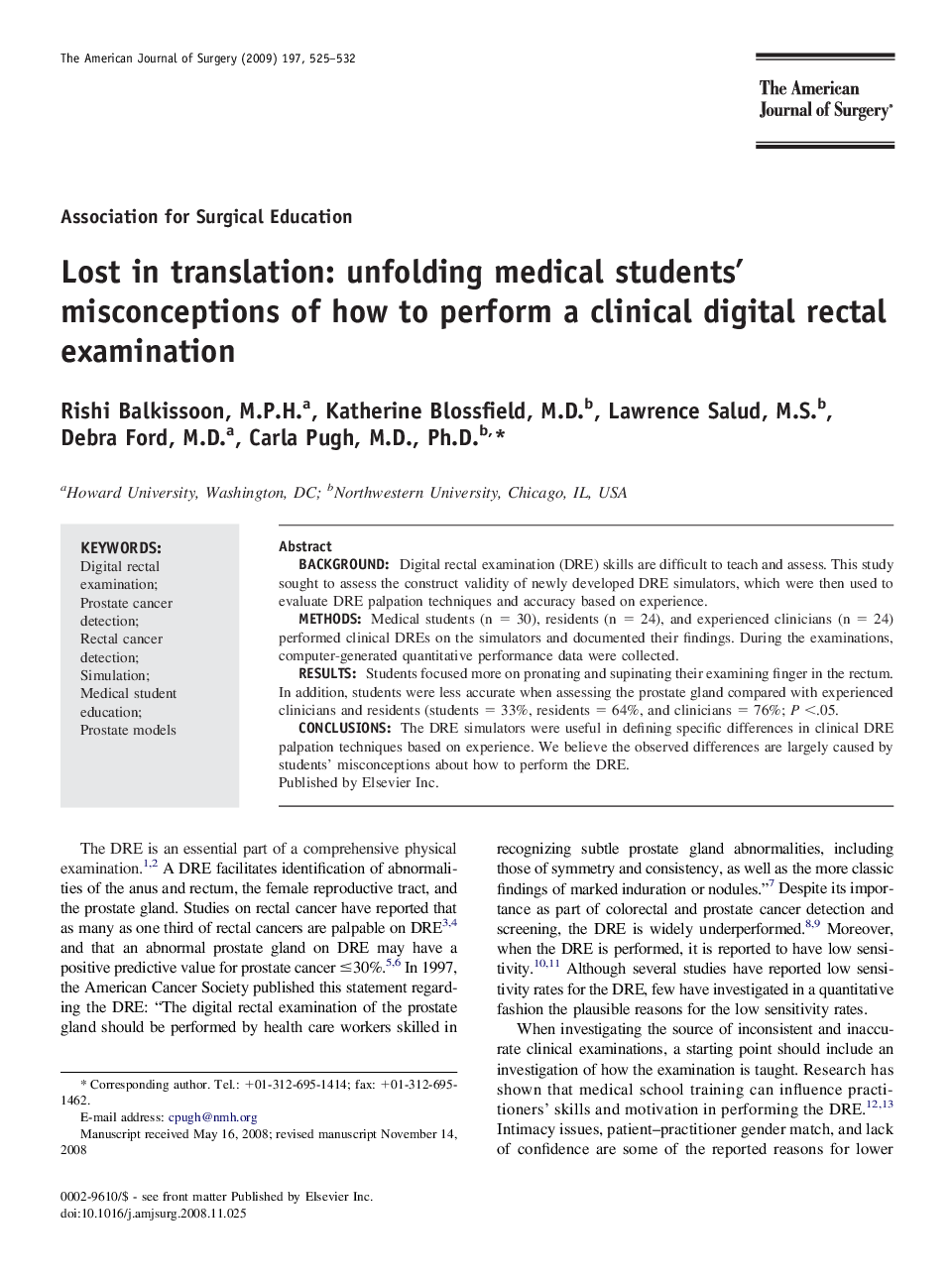| Article ID | Journal | Published Year | Pages | File Type |
|---|---|---|---|---|
| 4280826 | The American Journal of Surgery | 2009 | 8 Pages |
BackgroundDigital rectal examination (DRE) skills are difficult to teach and assess. This study sought to assess the construct validity of newly developed DRE simulators, which were then used to evaluate DRE palpation techniques and accuracy based on experience.MethodsMedical students (n = 30), residents (n = 24), and experienced clinicians (n = 24) performed clinical DREs on the simulators and documented their findings. During the examinations, computer-generated quantitative performance data were collected.ResultsStudents focused more on pronating and supinating their examining finger in the rectum. In addition, students were less accurate when assessing the prostate gland compared with experienced clinicians and residents (students = 33%, residents = 64%, and clinicians = 76%; P <.05.ConclusionsThe DRE simulators were useful in defining specific differences in clinical DRE palpation techniques based on experience. We believe the observed differences are largely caused by students' misconceptions about how to perform the DRE.
